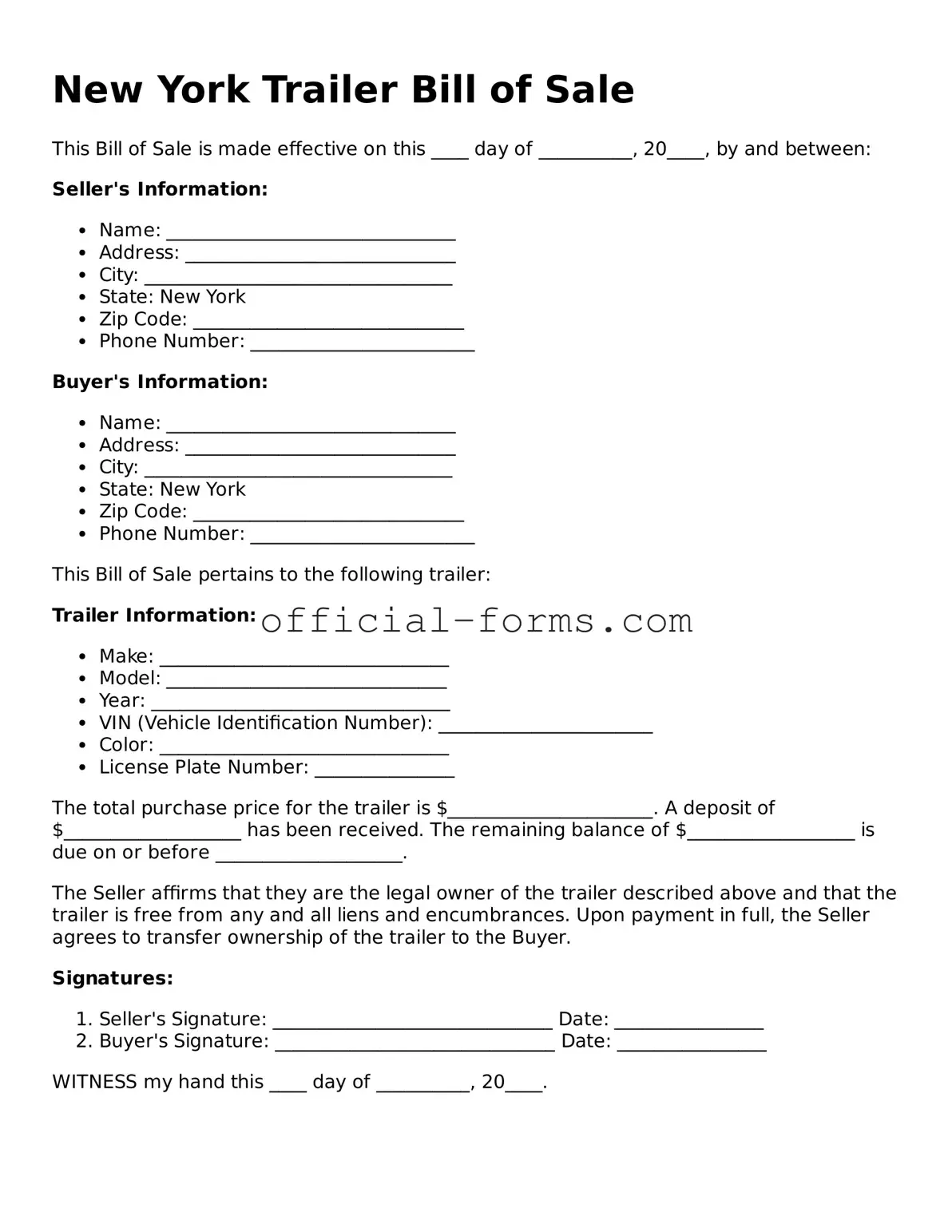Official New York Trailer Bill of Sale Document
The New York Trailer Bill of Sale form is a legal document used to transfer ownership of a trailer from one party to another. This form includes essential details such as the names of the buyer and seller, a description of the trailer, and the sale price. Completing this form ensures that both parties have a clear record of the transaction, which can be important for registration and future ownership verification.
Open My Trailer Bill of Sale Now

Official New York Trailer Bill of Sale Document
Open My Trailer Bill of Sale Now
Don’t leave your form incomplete
Finish Trailer Bill of Sale online quickly from start to download.
Open My Trailer Bill of Sale Now
or
➤ PDF
